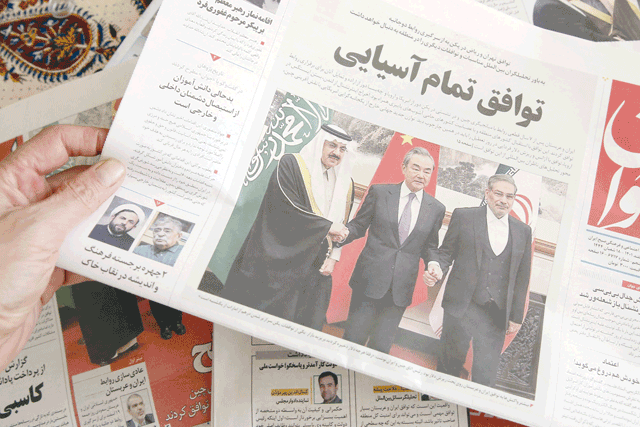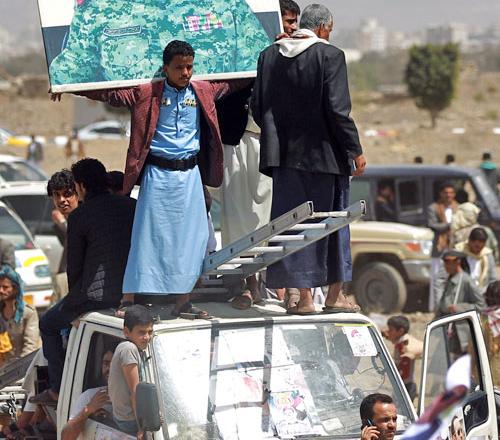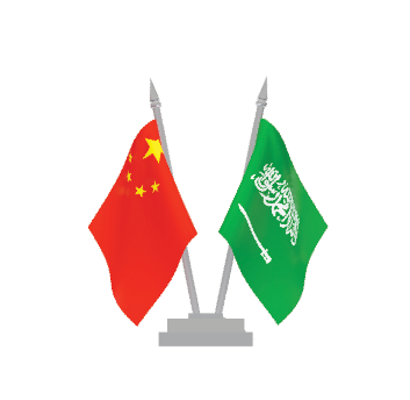You are here
'Early days': Middle East cautious on Iran-Saudi deal
By AFP - Mar 13,2023 - Last updated at Mar 13,2023

A man in Tehran holds a local newspaper reporting on its front page the China-brokered deal between Iran and Saudi Arabia to restore ties, signed in Beijing the previous day, on Saturday (AFP photo)
RIYADH — Even as they highlight the historic nature of a shock rapprochement between Saudi Arabia and Iran, regional officials and analysts are injecting a note of caution into their assessments of what it all means.
The deal announced Friday, brokered by China, stands to end a seven-year rupture in diplomatic ties between the two heavyweights that has stoked unrest across the Middle East.
Tehran said on Monday it was prepared to take the new air of reconciliation even further — by also mending fences with the Gulf kingdom of Bahrain, a staunch ally of Riyadh.
Like Sunni-majority Saudi Arabia, Sunni-led Bahrain suspended formal relations with Shiite-majority Iran in 2016 after Iranian protesters attacked Saudi diplomatic missions in response to the Saudi execution of a revered Shiite cleric.
"We should trust the path of diplomacy and take steps in this direction," said Iranian Foreign Ministry spokesman Nasser Kanani, highlighting "the positive atmosphere that we are witnessing in the region".
At the same time, though, Saudi Foreign Minister Prince Faisal bin Farhan stressed on Monday there were still many sore points to address in the relationship with Iran.
"Agreeing to restore diplomatic ties does not mean we have reached a solution to all disputes between us," Prince Faisal told the Saudi newspaper Asharq Al Awsat.
"Rather, it is a sign of our joint will to resolve them through communication and dialogue and peaceful and diplomatic means."
Whether and how that happens could alter dynamics in flashpoints from Yemen to Lebanon and beyond.
In Riyadh, especially, the response has been one of wary optimism.
"If Tehran keeps its end of the bargain this could be a true game-changer, heralding an era of regional peace and prosperity not seen in decades," Faisal Abbas, editor-in-chief of the Arab News, wrote in a column at the weekend.
"Of course, these are early days; there needs to be a trust-building period, and actions on the ground to cement the agreement."
What next?
Friday's statement, issued after talks in Beijing, identifies a two-month window for the two sides to formally restart relations and reopen diplomatic missions.
Beyond that, the language is somewhat vague, including a vow for each side to respect the other's sovereignty and not interfere in the other's "internal affairs".
What happens next in Yemen, where Saudi Arabia has led a military coalition against Iran-backed Houthi rebels, will offer some indication of how deep such promises go.
The Houthis have previously claimed drone and missile attacks on Saudi oil facilities, including one in 2019 that temporarily halved the kingdom's crude output.
Riyadh and Washington accused Iran of being behind that attack, which it denied.
"It is more than likely that the Iranians have made assurances to China that they will refrain from attacking Saudi Arabia directly or targeting the kingdom's oil infrastructure," said Mohammed Alyahya, a Saudi fellow at the Belfer Centre at Harvard University.
"Maintaining stability in the region and protecting the free flow of oil is as important for the Chinese as it is for the Saudis or even for the Americans.
"Given this alignment of interest, it is not unreasonable to expect the Chinese to put the weight of their considerable economic leverage behind this agreement."
Such a deal, however, is not the same thing as peace in Yemen, especially if it merely creates more space for ongoing Saudi-Houthi talks that could ultimately see Riyadh disengage from the battlefield.
"If it's just a Saudi-Houthi deal that we're about to see, it has to be the basis for a Yemeni-Yemeni dialogue," said Dina Esfandiary of the International Crisis Group. "Otherwise we're going to have an issue inside Yemen with the grievances of various other parties that aren't being addressed."
'Mood of optimism'
Similar uncertainty clouds other hotspots.
Will the Saudi-Iran deal encourage Riyadh to drop its opposition to the regional reintegration of Syrian President Bashar Al Assad, who is close with Tehran?
Could it help unblock the political impasse in Lebanon, specifically a fight by sectarian leaders over the country's next president?
The absence of clear answers has not dampened enthusiasm for Friday's announcement among analysts like Iraqi Ali Al Baidar, whose country has been roiled by the Saudi-Iran rift for years and tried to hash out an agreement between the two sides before Beijing got involved.
"Iraq is the biggest beneficiary from restoring ties between Iran and Saudi Arabia, this will ease the pressure on the Iraqi scene," Baidar said on Twitter.
It's the kind of general enthusiasm that has taken hold as the region waits for the specifics of the deal's terms to take shape.
The rapprochement "certainly creates a mood of optimism", Esfandiary said, "but it remains to be seen what it actually means".
Related Articles
ADEN/DUBAI — Saudi Arabia and its adversaries in Yemen’s armed Houthi movement are holding secret talks to try to end a three-year-old war t
Torn between a north controlled by Shiite rebels and a south dominated by the embattled president's allies, Yemen is mired in a proxy war between Iran and Saudi Arabia, analysts say.
RIYADH — Saudi Arabia has agreed to join the Shanghai Cooperation Organisation as a "dialogue partner", state media reported on Wednesday, t















